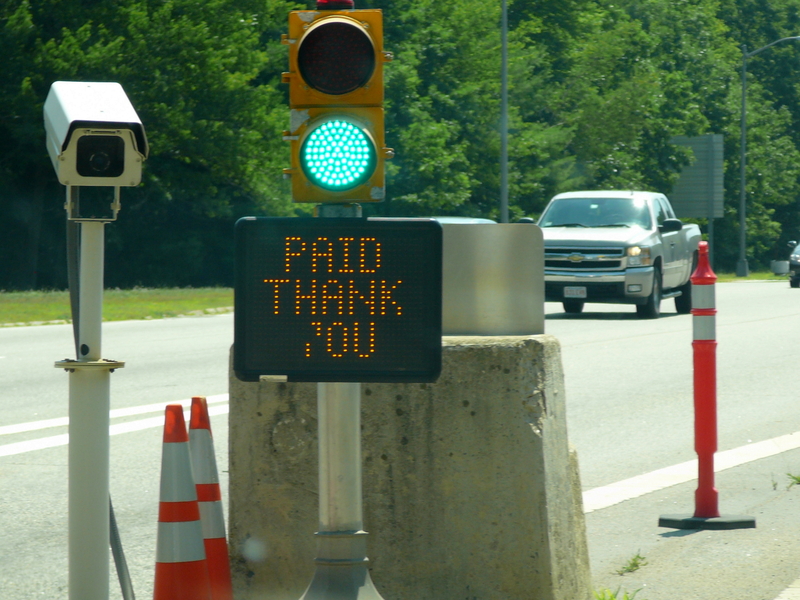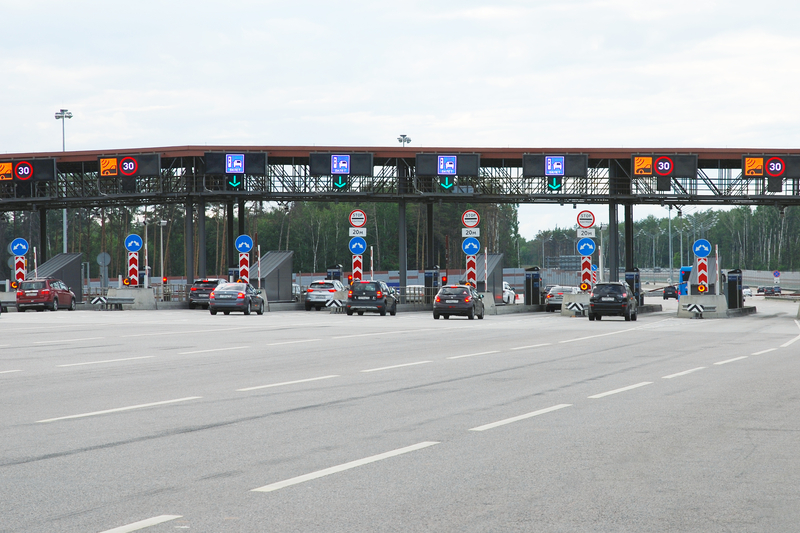
Bob, can you point to one major change that you've seen, say, in the last 20 years in tolling?
I think the biggest change is that everything is really connected now. In the old days, nobody worried about being connected, having payments connected, doing things automatically - now everybody wants everything to happen automatically. I mean, I'm probably showing my age a little bit but in the old days we were happy when a barcode scanned! So that's a huge change. And I see that becoming even more of an issue: there’s always some new technologies but the fact that people now expect things to happen automatically and be interconnected without thinking about it is really our challenge.
At SSI, we’re a technology company: we're not the interface to the customer, we're not the guys running the operation or the agency or anything, but it is expected that our technology is going to work perfectly every time. So our biggest challenge is to make sure that for the operators, for the integrators, whoever's running our agencies, that we're making sure that happens. It’s not so critical that people know who SSI is, actually - we want the people to know who the tolling agency is, and that everything works fine for them.
Does that mean you are happy to be very much part of the back-office function, rather than rather than in the spotlight?
I don't even know if we're considered back office - we're almost considered a roadside system, you know, we're an input tool: we're the magic that gets the data into the system at high speed and reliably! From a toll operator's point of view, I always take Taiwan as an example because that was one of the projects we did early on: they do 15 million transactions today - so the difference between 99% and 99.5% is a huge amount of transactions per day, so every fraction of a per cent that I can make better (from a technological point of view) probably means a lot of money to these toll operators and agencies who really don't make a lot of money off of anything except collecting tolls.
So that's always been my challenge: how much better can I make it for them? I think I think we do a fair job and I think there's a couple of other companies that do a fair job, too; I respect my competition but I think the really good ones like us are few and far between.
Products like your windshield transponders have been around for some time. So where does that technology fit into new ways of doing things in the tolling industry?
People are starting to get enamoured with global positioning, GNSS and applications, and people just want everything happening on the phone and that's great - I think that's where we're all heading. But if we take a step back just a moment and look at the toll operators: they just want to collect their money. They don't really care whether we wave a magic wand or whatever, as long as they can efficiently collect the tolls. We think our technology is very good and there are probably hundreds of millions of transactions going on with it a day.

But I think there's a next stage where we start to become more connected with the applications, with payment platforms - so the question is whether we tie in our transponders to mobile phones or to the vehicles. You’ve heard of V2X (Vehicle to Everything), but I want to coin the term T2X (Transponder to Everything). Our goal is to really tie that into everything because I think that's the natural transition. If people want to just throw away everything, all the infrastructure in all the countries and all the work they've done, and go to GNSS or DSRC plus some other satellite-type of thing, we're talking about billions of dollars of infrastructure change. SSI is going to come out with something to tie in what's existing to that future, and really make a good transition to it. This is what we've been developing, and I'm hoping sometime next year we'll have a real product that will do that, without costing the operators a ton of money, so we'll see.
Time will tell. I mean, I've got a little crystal ball on my desk but it still hasn't given me the lottery numbers, so I don't know. But we're giving it a shot.
You touched on it earlier, but is there an inexorable move to tie in smartphones and tolling? Is that the most obvious way to go?
Our goal is always to make it as efficient as we can for agencies to collect money. They have to deal with customers who are expecting this interface to be easy payment platforms, or whatever. So our goal, from a Star Systems point of view, is to really help them become more efficient and to move forward and to evolve into these applications where the customers are.
But my personal feeling is there's a lot of people selling a bunch of snake oil about how easy it's going to be to transition to these things. Because I'm an old guy, I've been around a long time and I know that it's not so easy, you know: first of all it has to really work. When we read a tag at 100 miles, 160km an hour, with enforcement, with cameras, license plate reading - everything's happening in a very, very small space of time. And we're very good at managing that.
So I'm not saying GNSS and DSRC and all these other things can’t do it, but it's not as easy as it sounds to get that 99.95% or 99.98% that the toll operators want.
So our goal is to make sure we keep their KPIs where they need to be. Not just cool-sounding technology, you know, and not just some cool app on a phone - it's got to really work for them. It's got to make business sense. So everything we do is based on that. I've talked to a lot of people with a lot of different cool-sounding technologies. Ask them the real-life questions about how's this gonna work for the guy who's got a contract with the government. He's only collecting money off of the percentage of what he collects and the difference between doing 15 million transactions a day. So 1% difference is, what, 150,000 transactions? That means probably quite a large group of people that he's got to pay because he has to reconcile those 150,000 transactions per day.

If I can help him to cut that to half or less, that's a huge amount of operational costs saving. So if I can redirect their focus to the reality, and then move them toward the evolution, that is what we want to do.
So what does the future hold for SSI?
It’s gonna keep evolving. I always tell my staff and all my engineers: I don’t want to be making floppy disks in the era of the cloud! So we can never rest on our laurels. We have to really think about what makes sense for the next step, and we have to make it; we have to make it a logical transition for the people who use it. The whole thing just has to work. There are a lot of cool things out there in the market but I don't know if there's a lot of people who really understand what the operators and agencies are going through - not just from a technological point of view, but from a commercial and customer point of view. We always try to take a little bit of perspective on that.
Even though we're very focused on technology, we think about how it affects those other parts of the business and their growth. I hope that's one of our strengths. I have a very, very, very good team and they're all really thinking about those kinds of things. We’re not leading-edge on some of these wild and crazy technologies - but we're trying to take what we put it into existing technologies and move it forward to the next step, and the next step after that, so it’s logical - and also economically friendly - ways for them to move forward.
Hey, in a couple of years we should talk and then we'll find out whether I'm right or wrong!











